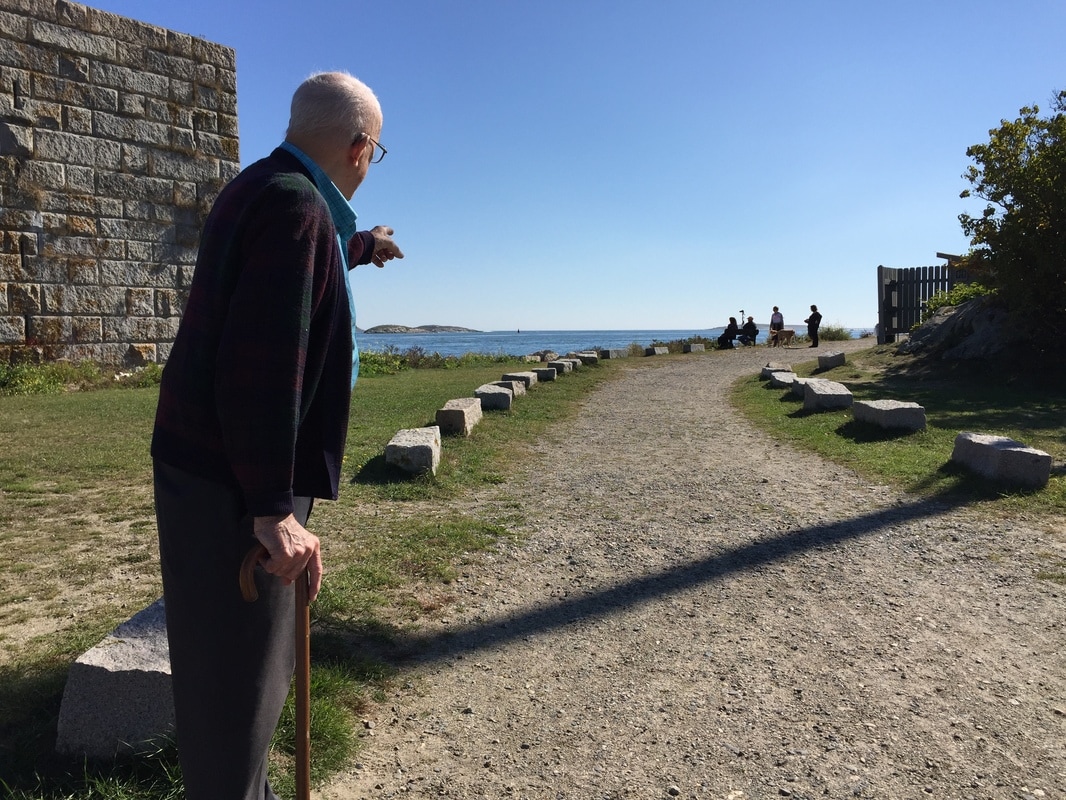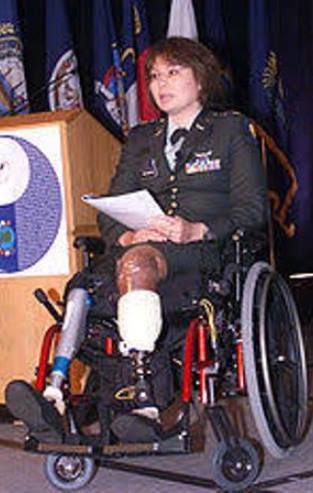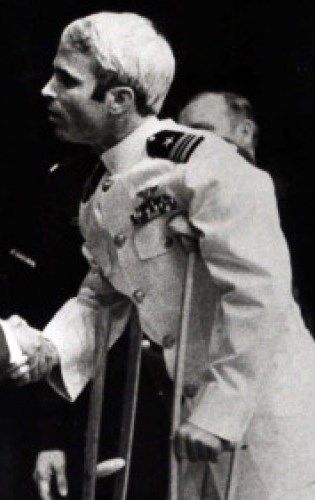|
On the Memorial Day weekend, it is only right to suspend hostilities and remember the people who served.
I’m thinking of the story Harold Grundy tells us every time we visit Maine. My wife’s uncle was a master carpenter working for the military during “the war,” mostly on ships delivering goods and ammunition. On one mission in the South Pacific, the closest ship was hit by a bomb or torpedo and split in two sections, both doomed. One half floated in his direction. “The men were on deck, waving to us,” he says. “They knew they were going down. The only thing we could do was wave back.” Think of it – dozens, perhaps hundreds, of doomed sailors, hailing their comrades. They all served. I think of two West Point football teammates who came home from Vietnam and discovered they had been serving (in different branches) way up north, during murderous fighting. Later, they learned the civilian government had figured out the war was not winnable, but did not bother telling anybody. “Their little epiphany,” one called it. He may be visiting the Academy this weekend, to honor classmates who died over there. I think of a man I did not know, a fraternity brother of sorts, buried in the military cemetery on Long Island. A friend of his from college visits the grave on the day he died in Vietnam, and organizes a scholarship in his name. I think of a journalist pal, Jim Smith, who served on the Stars and Stripes. For decades, he did not talk about Vietnam but now he has written a very nice book about what he saw, and gives the proceeds to veterans’ causes. I think about John Fernandez, the West Point lacrosse player who lost the lower parts of his legs in in Iraq --“bad day at the office,” he called it. Later, he played in alumni lacrosse games, on prosthetic feet and worked for veterans’ causes. I think about Tammy Duckworth, the pilot who lost parts of both legs on a mission in Iraq. She is now a senator from Illinois. I think about John McCain, who crashed in Vietnam and spent a few years in prison in Hanoi. I interviewed him once and told him my wife had learned McCain and his buddies quietly ran a pipeline of goods into Vietnam. Why? I asked him. His answer was a highly eloquent shrug with his broken arms and shoulders. * * * I think about heroes who served, not civilians who did not (like me), or ones who think people who get captured or shot down are not heroes, or ones who shove their way to the front of the pack and preen, as if they had done something mighty. This is the weekend for heroes.
Janet Vecsey
5/27/2017 08:53:40 pm
Beautiful tribute, GEORGE.
Mendel
5/28/2017 01:50:39 am
Thanks for this, George. 5/28/2017 11:23:41 am
A warn, caring tribute that is lacking from our "leader".
George Vecsey
5/28/2017 11:40:48 am
Thanks for these three comments. Alan, thanks for these vestigial memories of that country, in that time. GV
Brian Savin
5/28/2017 09:04:40 pm
Memorial Day is the day of the fallen. We remember the ultimate sacrifice with deep respect. Tomorrow in my Town we will gather at the cemetery and hear their stories through all the wars. For us it will be raining, and "happy is the corpse the rain falls on." November is the day of survivors. Our version of ANZPAC Day and "The Band Played Waltzing Matilda." As General Patton said, the objective is to make the other poor bastard die for his country." And so it goes. My Father said, as he saw the death of those on his left and right, it was all just chance. Amen.
George Vecsey
5/29/2017 02:04:28 pm
Brian, absolutely right. I thought of that while writing it, but we're very involved with our uncle these days, and I am newly filled with stories about that war. He lived through it so he could talk about those men, waving.
Mendel
5/29/2017 01:44:08 am
My grandfather, Sam, emigrated from then Palestine to NYC in 1930 at the age of 13. By 1944, while engaged to my grandmother, Mary, he was in Chakula, India, building runways for B29s. On the night of January 16, in Burma, he sustained life threatening injuries when hit by a drunk driver on leave. Upon recovery, he served for two years before returning home to marry. Zaidy Sam passed away in April 2004, leaving behind 14 grandchildren and 6 great grandchildren. RIP. 5/31/2017 01:26:44 pm
Mendel-I mentioned in another post that my father had immigrated from Russia in 1921. The family had lived in Berdich about an hour west of Kiev.
Mendel
6/1/2017 03:01:47 pm
Alan, thanks for sharing. I share your sentiments about real estate fortunes lost in time. My grandfather's childhood home is worth a pretty shekel today.
George Vecsey
5/29/2017 02:22:18 pm
Mendel wrote a lovely piece about a Mets fan from Queens who finds new heroes, in a different uniform, when he spends a summer in Israel. He describes how his path changed after that: Please read:
Brian Savin
5/29/2017 08:57:21 pm
Not all battles worth waging need be on the fields of war. Some good ones are waged by men of letters. In that wider sense Frank Deford, who died Sunday, is worth memorializing. Bryan Curtis's article in a new age Internet magazine called The Ringer
Gene Palumbo
5/30/2017 01:08:20 am
George: I'm glad you suggested so strongly that we read Mendel's piece. You were right.
Mendel
5/30/2017 03:22:47 am
Glad you like it, Gene. And thanks for posting it, George. 5/31/2017 12:39:53 pm
Harold is one of those intuitively handy people who can do everything. Just an amazing person. 9/2/2017 12:04:49 pm
such a large number of engaging stuff in your blog, particularly its exchange. I will persistently be going ahead a normal premise you simply read your posts Comments are closed.
|
Categories
All
|












